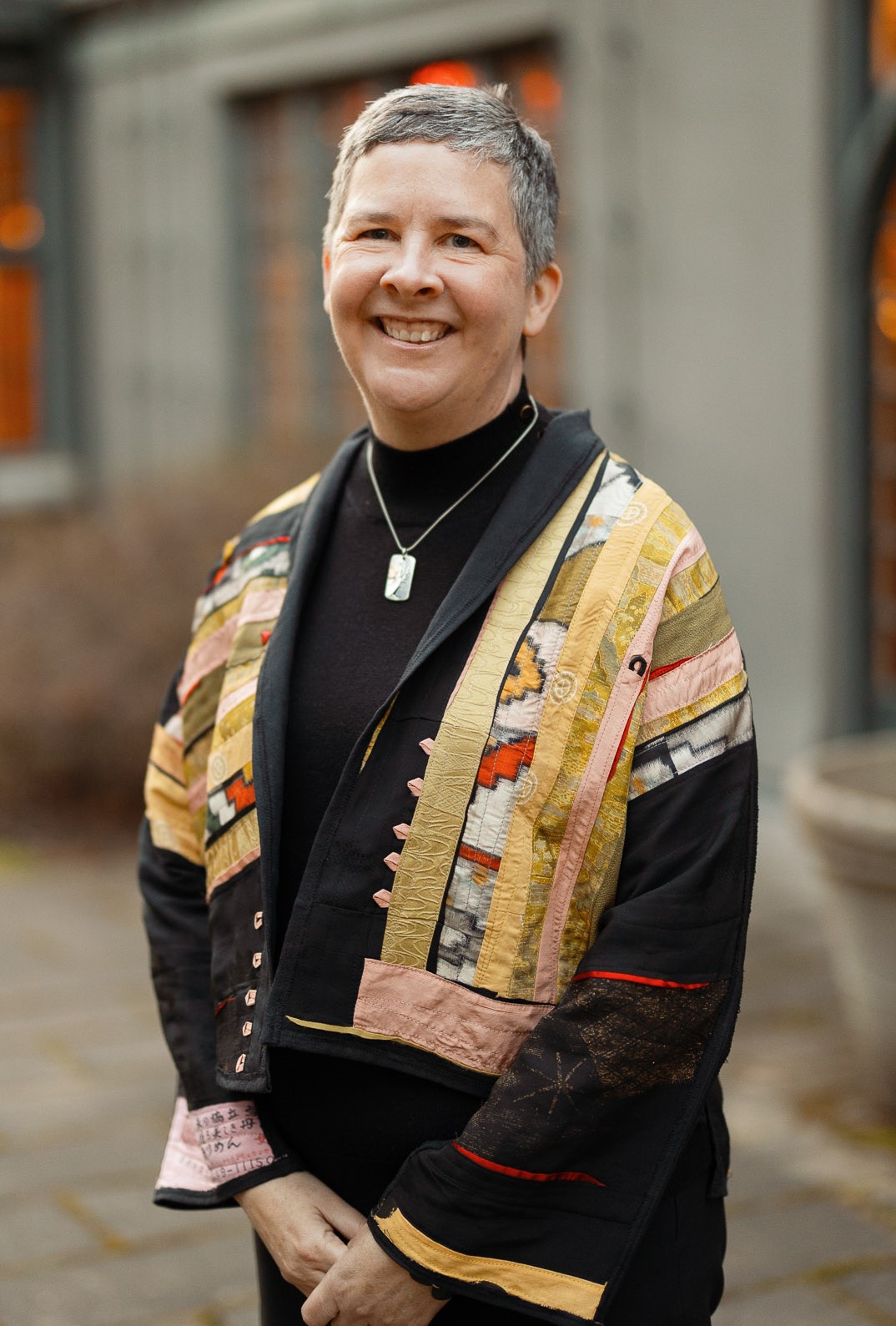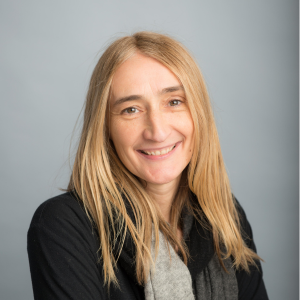
Dr Emma Cunliffe is a professor in the Allard School of Law and served as the Director of Research and Policy for the joint Federal-Nova Scotia Mass Casualty Commission. She is the fourth principal of Green College.
In her academic work, Dr Cunliffe studies how courts decide the facts of contested cases. She is particularly interested in expert evidence, the operation of implicit bias, and legal processes regarding gendered and racialized violence, particularly those regarding Indigenous people. Dr Cunliffe is a member of the evidence-based forensic initiative, which is based at the University of New South Wales (where she is a senior visiting fellow). Her 2011 monograph Murder, Medicine and Motherhood (Hart: Oxford, 2011) provided a comprehensive evaluation of the wrongful conviction of Australian mother Kathleen Folbigg. This book led to a review of Ms Folbigg’s case and eventually, contributed to her receiving a free pardon in June 2023.
With funding from SSHRC, Dr Cunliffe is presently analyzing how facts are “found” in Canadian trials, inquests and commissions of inquiry that engage with gendered and racialized violence. She is particularly investigating whether expert knowledge (such as forensic medicine and psychiatric testing) operates as a Trojan horse by which discriminatory knowledge and beliefs reinforce implicit and structural biases within the legal system. She is also studying examples of legal processes in which discriminatory beliefs are successfully countered. Her major work in progress is a monograph, Judging Experts. This book will explore examples of judicial engagement with expert evidence to assess how effectively Canadian legal processes ensure that expert witnesses provide independent and reliable expert testimony. Dr Cunliffe’s work is predicated on a careful analysis of trial transcripts and court records such as expert reports. She also compares experts’ work in legal cases against the research base of fields such as forensic pathology.
At the Mass Casualty Commission, Dr Cunliffe and her team were responsible for all research and policy aspects of the Commission’s work, including commissioning expert reports, planning and facilitating policy roundtables, consulting with differentially affected communities and producing an environmental scan of past inquiry reports and recommendations on matters within the Commission’s mandate. She also played an integral role in the preparation of the Commission’s Final Report.
Dr Cunliffe’s contributions to research and teaching have been recognized, including in the 2016 Courage in Law Award given by the Indigenous Law Students Association at UBC, a UBC Killam Research Fellowship (2014), the Killam Award for Teaching Excellence (2010) and the George Curtis Memorial Award for Teaching (2010).
The college vice principals are both former resident members of the college with PhDs from UBC, have served on the college’s advisory board, and have wide and deep experience of university life in Canada and other parts of the world. Professor Airini has been appointed as the fifth president and vice chancellor of Thompson Rivers University. Professor Nicola (Nikki) Hodges is a professor in the School of Kinesiology at UBC. Each recently found a moment to talk to the Green College Annual Report & Society Magazine about what Green College means to them and what part they hope to play in its future.
Airini and Nicola bring to Green College the skills they have acquired over successful careers as academics, each researching a unique area of interest to which they continue to contribute actively as scholars.
Airini earned her PhD at UBC in Curriculum and Instruction, adding it to a BA in Religious Studies, a Master of Education and an MBA. She has been recognized by UBC as one of its Outstanding Alumni and as an Indigenous Woman Leader. She has led educational planning strategies in several different countries, handling budgets of over 90 million dollars, and is currently an advisor to the UN’s Food and Agriculture Division. Her research focuses on the accessibility of educational success for all. Airini brings to her role as vice principal her view that research and leadership are forms of service. She says: “I will always be asking myself: How will my time in service and as vice principal be of greatest benefit to the students, to the staff, the leadership and to the community that Green College wishes to connect with.” She intends, as well, to approach her role “with an appreciation for the opportunity to be in a nation and nation’s territory, and to be a visitor there and to be in service to a land that has been involved in research and teaching and community-making and ideas exchange for millennia.”
Nicola holds a PhD from UBC in Human Kinetics, as well as an MSc in Human Biodynamics and a BSc in Psychology. She currently runs the Motor Skills Lab in Kinesiology at UBC, which examines how and why various practice variables (such as instruction, demonstrations, feedback and order of practice) impact motor learning and transfer. Nicola has a keen sense of the interdisciplinarity of the college. “I’m almost like a prototypical multidisciplinary researcher,” she says, noting that her research has been funded by all three Tri-Agencies in Canada. Currently, she is doing work that straddles the social sciences and natural sciences. Nicola has remained a part of the Green College community since moving out, often going to talks which she says she finds invigorating: “I’ve been teaching all day and dealing with lots of things, and I walk over to the college, there’s a sort of physical distance. You walk over to the Coach House and you listen to a talk that’s not in your area, so you can put your pen down. You don’t have to worry about taking notes and can just listen to something that reminds you why you’re a scholar, and how privileged you are to have time to think and listen and engage in ideas and friendship.”
Airini and Nicola come back to Green College with their experience as former resident members. “Afterwards,” remarks Airini, “you realize what an incredible opportunity it was: to break down barriers, to genuinely come together and have a go at talking across disciplines and sharing ideas that range from a microbe to black holes, from chemistry to poetry, from education—my world—to saving languages, saving salmon, saving trees.” Closing her eyes, she continued: “If I just close my eyes and say ‘Green College,’ all of these different images come forward, from the dining hall, to the scholars coming in to give talks, to when we were lucky enough to have a gala … and then to look outside my window from time to time when I’d be beavering away on my PhD research and to see the extraordinary forest.” In the end, she said, living at Green “was this rarefied time of privilege to really swim in ideas and research and make yourself something that could do something that mattered.”
For Nicola, one of the most significant parts of college life was the people she was surrounded with, all coming from different programs and disciplines. “You arrive at dinner,” she reminisced, “and you sit down and you have these weird and wonderful conversations, which was energizing. I think, especially after a very long day in your subject area, it was nice to just be in somebody else’s world and subject area.” Some of Nicola’s specific memories of her time at the college, and which she narrated fondly, include joining the Green College Players and performing in productions of Twelfth Night and The Importance of Being Ernest. The beauty of Green College, Nicola suggested, is that “there’s no shortage of people around you who will say ‘Yes, let’s do this’ and actually will go and do something about it. I mean, that’s what's so amazing about Green College.” She recalled one instance of this when a friend, who was in a pipe band at Simon Fraser University, offered to come to the college to play with the band, on the condition that they be fed. A full-blown Robbie Burns Night was organized, with pipe-playing, kilt-wearing, poetry-reading, haggis-eating and whisky-tasting.
The care that Airini and Nicola have for Green College comes through in their wishes for its future. In Airini’s eyes, “the potential for Green College to influence what it means to be a leader, to be an intellectual, and to be a citizen has never been greater, nor has it been more greatly needed.” At a time when many parts of the world are putting up barriers, “being angry with one another and finding it too difficult to listen or to reach out, Green College is actually about causing people to come together, opening minds and ears and hearts to listening to differences of disciplinary perspective, or theoretical perspective. It’s about having an underpinning premise that it is possible for us to actually coexist, and that’s hard work. That’s really hard work.” According to Nicola, the purpose of Green College is “to capture and sustain the creativity that comes from people being together, people who are engaged, and intelligent—to remain the wonderful place it is for new graduate students, and continuing graduate students and postdocs who want to be somewhere that supports more than just their immediate traditional study.”
Interview and article by Jane Willsie, English Language and Literatures, Green College content writer, 2022.

